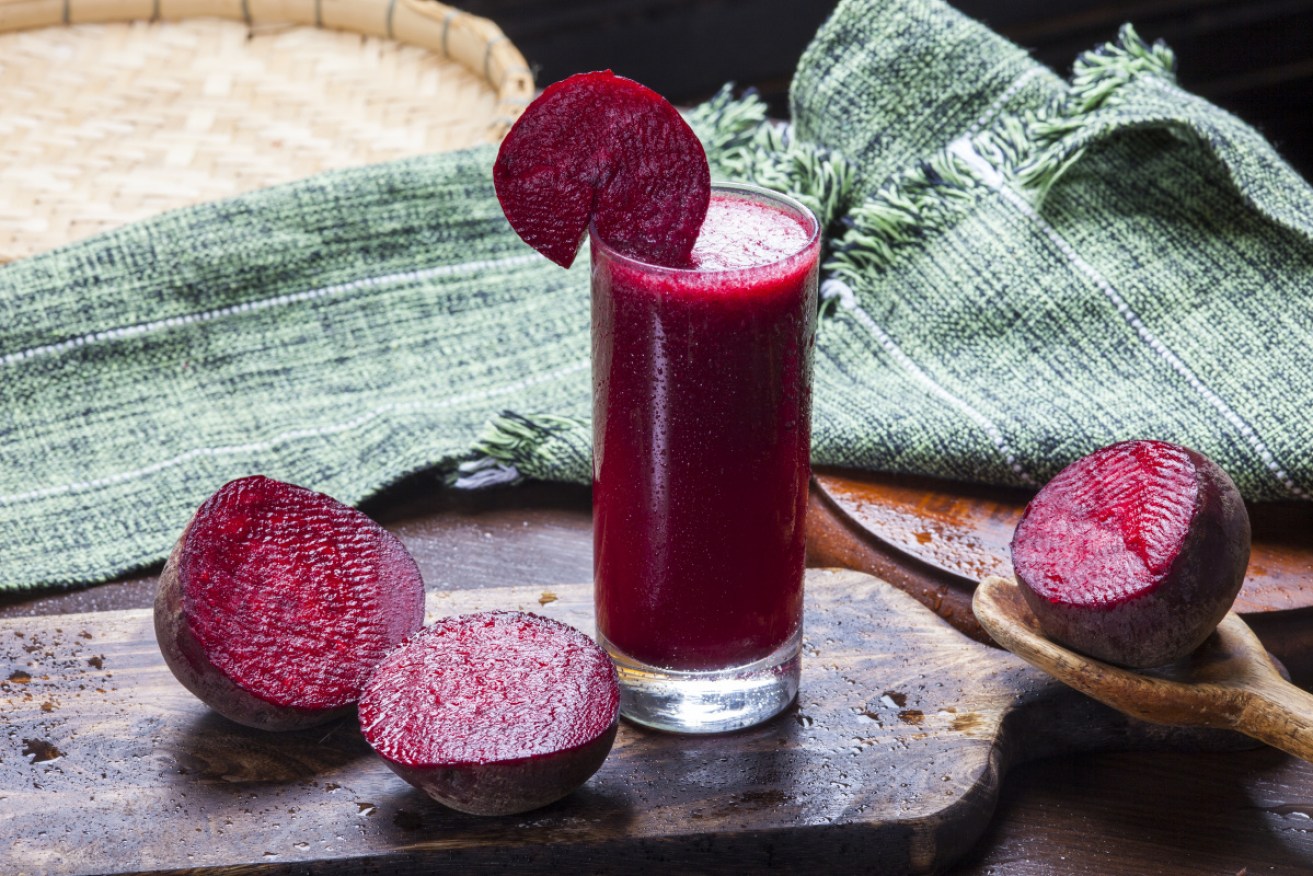Ageing brain and blood vessels? Beetroot juice sorts out the bugs


You can't beat beetroot as a reliable route to heart and brain health. Photo: Getty
Forget gold, silver and bronze. The real magic colour for athletes is crimson-purple … as found in beetroot juice.
In the past decade, there’s been a number of studies – including a 2015 experiment involving Australian kayakers – that found beetroot juice boosted athletic performance.
In a 2011 study, professional cyclists who drank beetroot juice saw their pedalling performance improve by 2.8 per cent.
For elite athletes, where the tiniest improvement can mean the difference between a medal or an also-ran bout of tears, this was a significant finding.
In 2018, the International Olympic Committee, citing good evidence, formally recognised beetroot as a legitimate sports food.
What does that mean for ordinary folk?
There are studies that suggest beetroot juice is good for lowering cholesterol, supporting liver health, quickly improving muscle performance in people suffering heart failure and is a good source of folate and potassium.
What gives beetroot juice an almost magic elixir reputation – and where the most persuasive evidence lies – is how quickly it can lower blood pressure, and support neurotransmission (the firing of chemical messages in the brain).
A 2016 study found that drinking beetroot juice every day improved exercise endurance by 24 per cent and significantly reduced resting systolic blood pressure in elderly patients.
How so? Beetroot contains high levels of nitrates. During digestion, these are converted into nitric oxide, a compound that relaxes and widens blood vessels. Hey presto, lower blood pressure.
The role of germs and old people
As researchers from the University of Exeter point out in a new study, as we age, our bodies tend to produce less nitric oxide – which is associated with declining vascular (blood vessel) and cognitive (brain) health.
Why the drop in nitric oxide? The quality of oral bacteria – the germs in the mouth – is the key.
‘Good’ oral bacteria plays a role in turning nitrate to nitric oxide.
‘Bad’ bacteria promotes disease and inflammation.
Without an intervention, ageing tends to facilitate a decline in the good bacteria, and a rise in the bad – and eventually our arteries and brain cells suffer.
Beetroot juice to the rescue
In the University of Exeter study, 26 healthy people aged 70 to 80 drank beetroot juice twice a day, for 10 days.
As a control measure, they drank a nitrate-free placebo juice over a separate 10-day period.
Beetroot juice promoted “higher levels of bacteria associated with good vascular and cognitive health, and lower levels of bacteria linked to disease and inflammation”.
There was also, on average, a drop in systolic blood pressure by five points.
Lead author of the study, Dr Anni Vanhatalo, an Exeter professor of physiology, said the study findings “have important implications for healthy ageing”.
“Previous studies have compared the oral bacteria of young and older people, and healthy people compared to those with diseases, but ours is the first to test nitrate-rich diet in this way,” Dr Vanhatalo said.
She said that adding nitrate-rich foods to the diet for just 10 days could substantially alter the oral microbiome (mix of bacteria in the mouth) for the better.
“Maintaining this healthy oral microbiome in the long term might slow down the negative vascular and cognitive changes associated with ageing,” she said.
The researchers are now investigating interactions between the oral bacteria and cognition “to better understand how diet could be used to delay cognitive decline in older age”.








